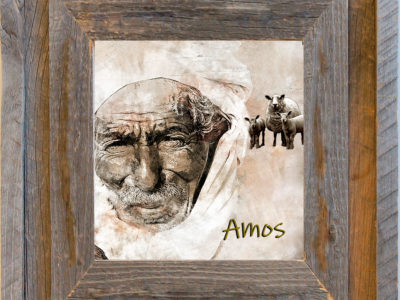THERE ARE SUPER-WEALTHY PEOPLE who don’t cheat widows, overcharge the poor for food, and kick the down and out up and down. But not in the Bible book of Amos.
In Amos, the rich are the bad guys. Not that all the rich are bad. Just all the rich in the Northern Jewish nation of Israel 2,700 years ago. So it would seem, if it weren’t for a little hyperbole, to which Amos does not admit.
I just finished paraphrasing Amos for the Casual English Bible. I’ll create maps for the book next, and then move on to another Bible book.
Here’s a refresher course on Amos, using a few excerpts from the Introduction:
Intro Notes for Amos
There’s one quote in Amos that best describes him and his hot-headed message.
It’s a line he delivers to rich women in the Washington DC of his day, Samaria—capital of the northern Jewish nation of Israel:
Listen to me, you pampered cows,
Women grazing on Samaria’s hills,
Cheating the poor
And stealing from people
Who struggle to survive.
Yeah, it’s you women who say
To the man of the house,
“I could use another drink about now.”
(Amos 4:1, Casual English Bible)
No polish on Amos
Amos wasn’t a polished public speaker delivering a hard message in a mild manner. He was a dirty-fingernailed fig farmer and a shepherd with flock to get back to.
Amos didn’t beat around the bush. He set it on fire. Then he fed it on flaming words—until a priest in town told him to shut up and go back where he came from.
God’s message received.
Country boy
Amos lived in the town of Tekoa, about a half day’s walk south of Jerusalem—which was the capital of the southern Jewish nation of Judah. The original Israel split over taxes after King Solomon died.
Oddly, as Amos tells it, God gave this comparatively poor southern farmer a message to deliver to Northern aristocrats who were living at a time of high prosperity for the rich and famous, if no one else.
Northerners and Southerners weren’t on good terms. So, Amos didn’t have a lot to lose by skipping pleasantries and giving them what for.
Idolatry was the big complaint for many prophets. And Amos covered that a bit, especially condemning Israel for worshiping and sacrificing outside of Jerusalem. God’s command through Moses was that Jews were to worship and sacrifice only at Jerusalem’s Temple (Deuteronomy 12:5).
But idolatry wasn’t the headliner for this a fig famer.
God told Amos to deliver a message that most any farmer in his day could get passionate about: greed, exploitation, and cheating the most vulnerable people in the world. Back then, it was widows, orphans, and immigrants—like it is today.
Casual English Bible
Steve’s Bible-background YouTube Channel
More feature articles
Funny-odd Bible proverbs
Bible Gateway


Leave a Reply